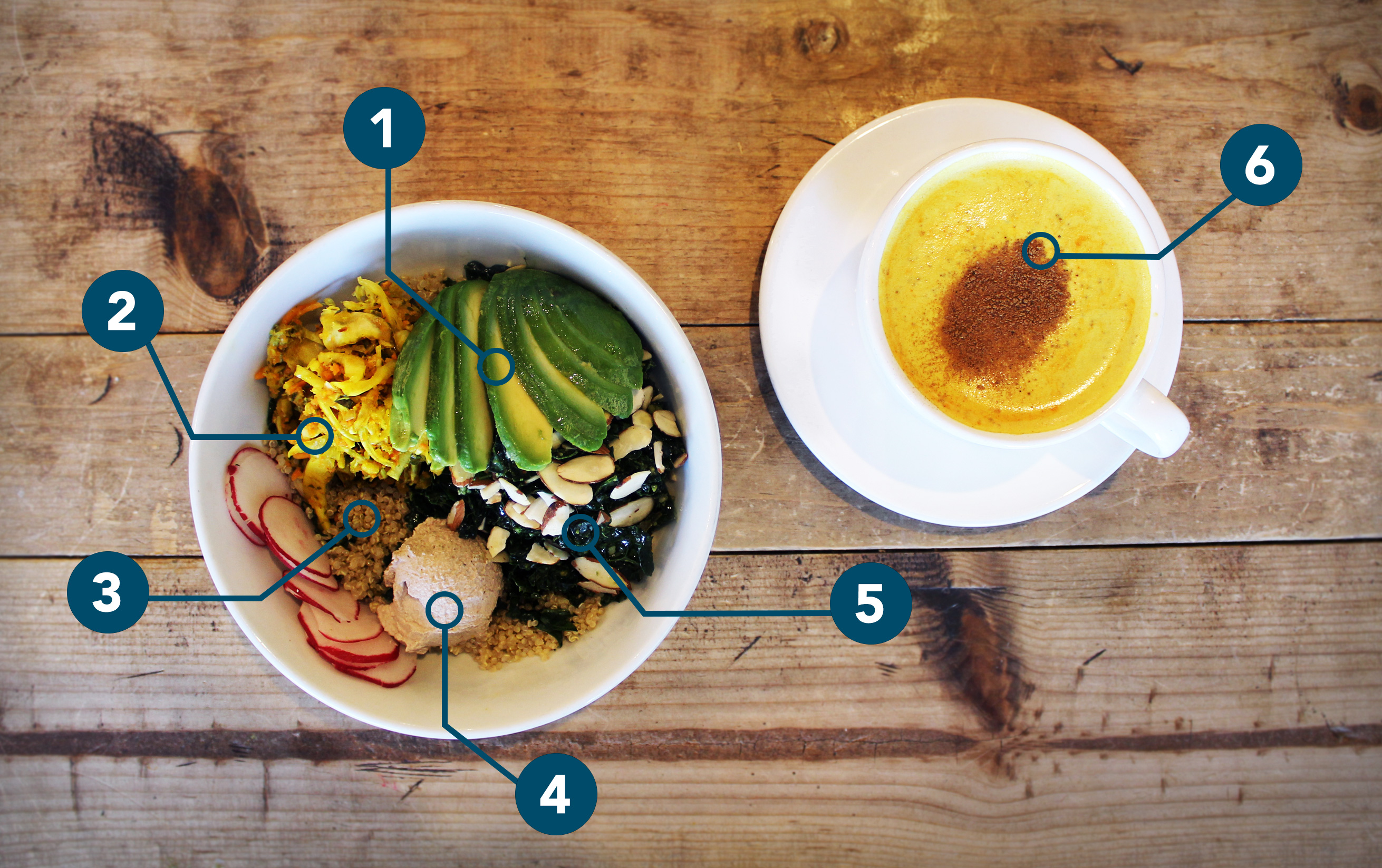A vital component of cognitive health involves nourishing your brain with the nutrients it needs to function at a high level. According to acclaimed neurologists, Drs. Dean and Ayesha Sherzai of Loma Linda University Medical Center, it's best to get these micro and macro nutrients from plants instead of pills. In their natural form, these nutrients are easily recognized, absorbed and used for health by our bodies. The Sherzais are quick to point out that when it comes to brain health, there is no “magic pill” you can take, so focus on eating a whole food, plant-based diet chalked full of brain-boosting ingredients like this Quinoa Bowl and Turmeric Latte from The Source Café at the Beach, a healthy — and delicious! — Blue Zones Restaurant.
- Avocado: Packed with mono-unsaturated fats,
avocados supply healthy fats that
support brain structure and blood flow. - Fermented Vegetables: Gastrointestinal health is linked to
improved brain function, so reach
for probiotic-packed foods like
fermented cabbage and carrots. - Quinoa: One of the most nutrient
rich foods available, quinoa
contains ample fiber, vitamin
E, and minerals like zinc,
phosphorous, and selenium,
all essential building blocks
for brain cells and their
supporting structures. - Walnut Crema: Its main ingredient, raw organic
walnuts, is high in healthy
unsaturated fats, which reduce
the risk of Alzheimer’s according
to multiple studies. - Kale: Leafy greens like Kale are a rich
source of polyphenols, folic acid,
lutein, vitamin E, and beta carotene,
all nutrients strongly associated
with brain health. - Turmeric: Curcumin, an extract of turmeric, is
an antioxidant, anti-inflammatory and
anti-amyloid powerhouse.




